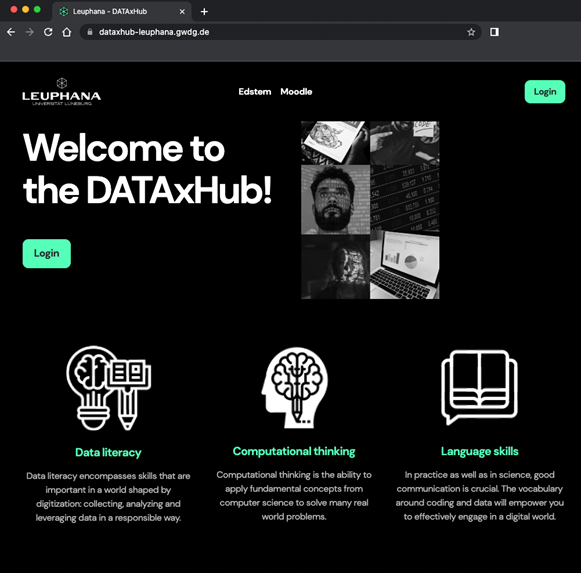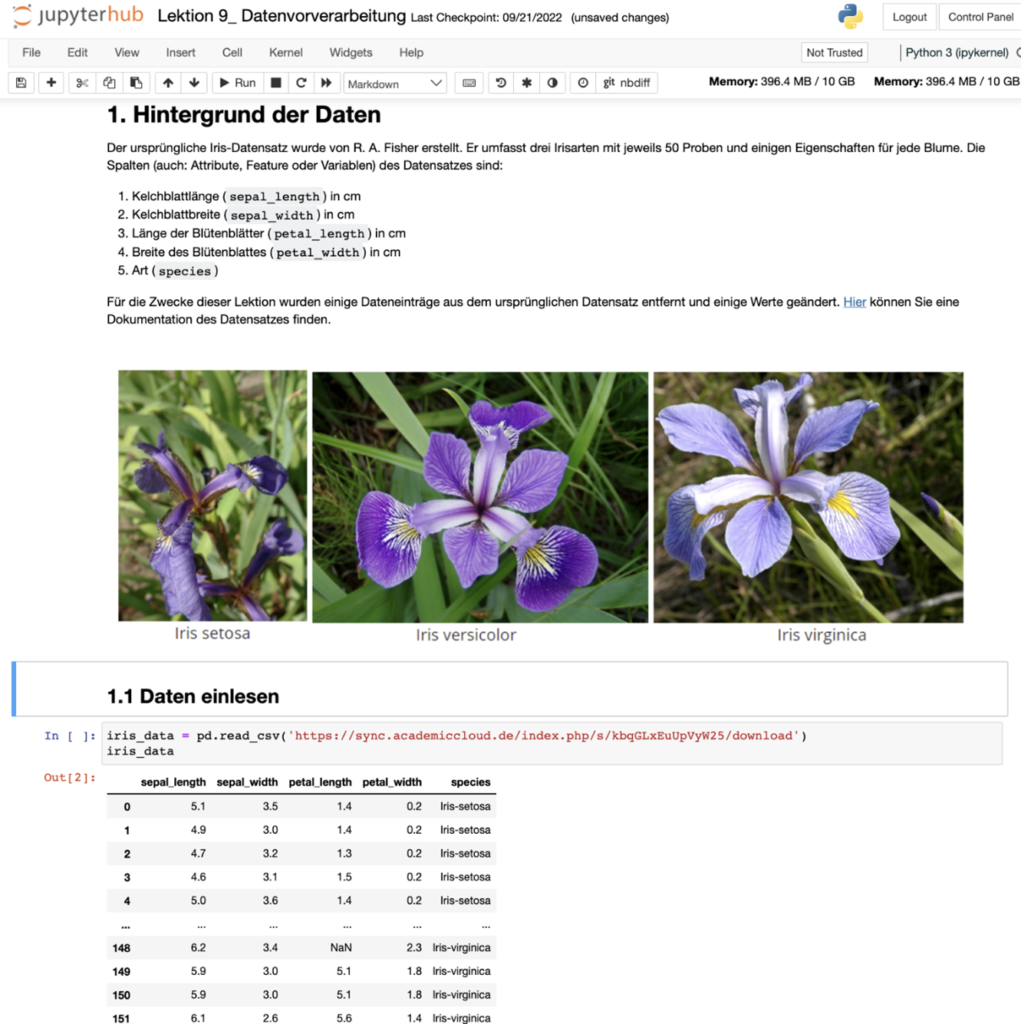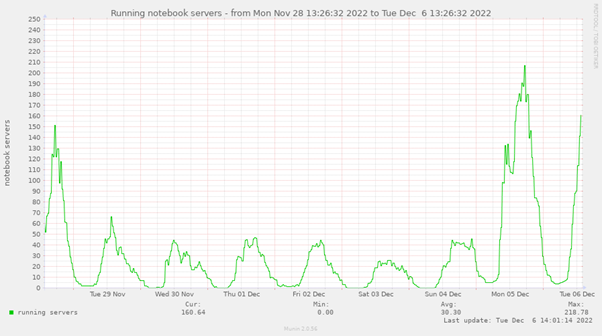A Hub for fostering data literacy skills
at the University of Leuphana
by Fransisco Arcila Salamanca
The DATAxHub is a Jupyterhub implementation introduced during the winter semester of 2022/23 by the DATAxtended subproject from the University of Leuphana.
Jupyterhub is an open-source tool that allows users to create and share interactive notebooks containing live code, equations, visualizations, and text. It is commonly used in education to facilitate collaborative, exploratory programming and data analysis. Particularly useful for teaching programming and data science, this tool allows students to write and run code in a web-based environment, without having to install any software on their own computers.
Since its release as part of the mandatory course “DATAx: Data analysis with Python”, DataxHub is helping over 1300 first-semester students from all programs of the university to improve their data literacy skills and engage with the course content in an interactive way.

In today’s increasingly data-driven world, it is essential for students to be able to understand, manipulate, and analyze data in order to make informed decisions and solve complex problems. By using the DATAxHub, students from diverse backgrounds and fields of study can gain the skills and knowledge they need to work with data effectively and can apply these skills to their future studies and careers.

Research on teaching
The DATAxHub also provides the university with a platform to conduct research on how students engage with the course content and improve the courses accordingly. By monitoring student activity and gathering feedback, we can ensure that the course is meeting the needs of our students and will help us develop advanced courses tailored to their learning style. By collecting and analyzing data on student usage and performance, instructors can gain valuable insights into how students are learning and engaging with the material and can use this information to make improvements to the course and its delivery. For example, instructors can use the DATAxHub to see which parts of the course are most challenging for students and adjust the teaching materials and assignments accordingly. This can help make the course as effective and engaging as possible so that students are able to learn and retain the information they need to succeed in their studies.

Improvement of teaching
One of the key benefits of DATAxHub is that it provides a platform for instructors and staff to develop tools and processes that can help to improve teaching and learning. By using DATAxHub notebooks, instructors can create custom scripts and applications that can support grading and feedback, as well as other tasks that are time-consuming and error-prone when done manually.
For instance, DATAxHub already implements a series of scripts to facilitate the grading of programming assignments that are run on the students‘ code to check for the correct output of their assignments. This saves instructors a significant amount of time and effort, and can also provide more consistent and accurate grading, compared to grading assignments by hand.
A dashboard of the DATAxHub resources provides among other technical information, anonymous insights into how often students are using the platform. This can help inform future course planning, optimize resource usage, and ensure that the course material is well-aligned with the needs of the students.
Future perspectives
The DATAxHub can also be used to provide students with more detailed and personalized feedback on their work. By writing scripts that can analyze students‘ code and provide specific feedback on areas that need improvement, the Hub could help students to learn more effectively and quickly. This can be especially useful for programming assignments, where the feedback can be tailored to the specific errors and issues that the student is experiencing.
Teaching staff from all faculties should also be invited to use DATAxHub in their courses to provide a collaborative and interactive learning environment for their students. This could help students in a wide range of disciplines, from computer science and engineering to social sciences and humanities, to better understand and analyze data in their field of study as well as tutors create a more collaborative and interdisciplinary environment. For example, they can use the DATAxHub to collaborate with other students on group projects or to complete assignments that require them to write and run code. With the acquired knowledge, students can continue to use different implementations of JupyterHub after they graduate, to develop and share their own data analysis projects or to apply for jobs that require programming and data analysis skills.
DATAxHub was developed in collaboration with the “Gesellschaft für wissenschaftliche Datenverarbeitung mbH Göttingen” (GWDG) as the provider of the infrastructure and maintenance of the platform ensuring the stability and reliability of DATAxHub for its use at the university of Leuphana.
We believe that DATAxHub will help to support Leuphana’s mission of providing high-quality Data-literacy education to its students to understand and navigate the increasingly digitalized world we live in. Whether it’s climate change, public health, or social justice, data can play a critical role in addressing these challenges, and DATAxtended can provide students with the tools they need to make a difference.


